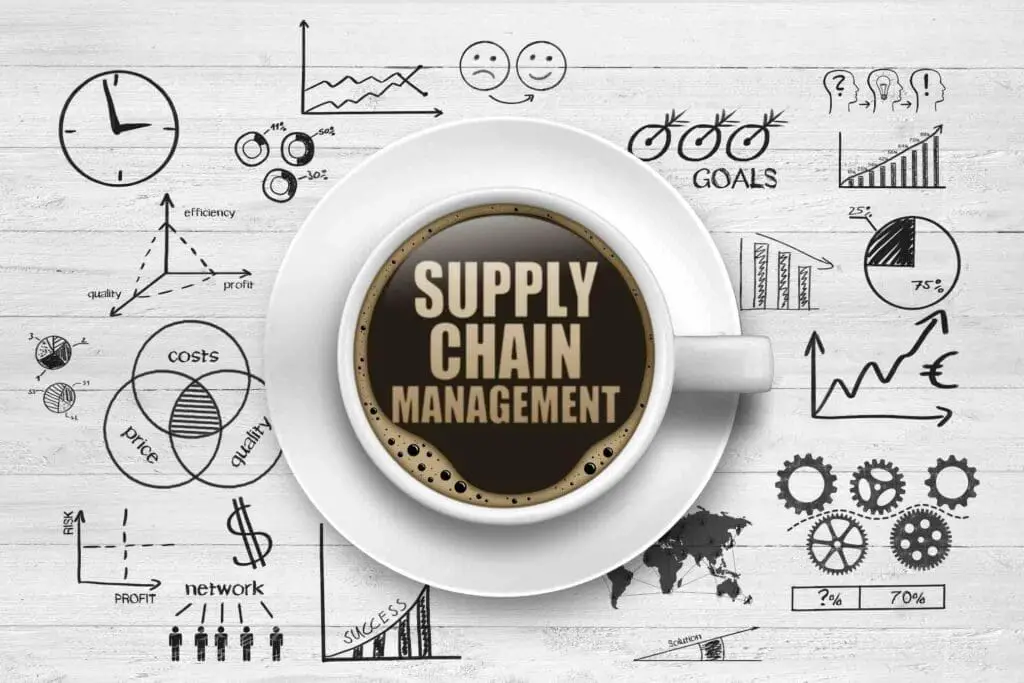At the heart of every action in the supply chain lies communication. Undoubtedly, it stands as the most pivotal element for anyone navigating the intricacies of the supply chain, especially on a global scale.
Information equates to both time and money. Miscommunication or lacking vital information can lead to delays, increased costs, and challenges. Join us as we delve deeper into the indispensable nature of sharing information and effective communication in the supply chain landscape.
Table of Contents
- How Does Information Sharing Affect Supply Chain Performance?
- 14 Reasons Why Communication Is Essential In SCM:
- Real-time Monitoring
- Risk Mitigation
- Improved Supplier Relationships
- Inventory Management
- Enhanced Customer Satisfaction
- Optimized Transportation
- Cost Savings
- Increased Transparency
- Efficient Production Scheduling
- Collaborative Planning
- Better Decision Making
- Agility And Responsiveness
- Enhanced Quality Control
- Strengthened Competitive Advantage
- The Benefits Of Sharing Information With Suppliers: Essential In Supply Chain Management
- Related Content
How Does Information Sharing Affect Supply Chain Performance?
Supply Chain Management (SCM) revolves around efficiently producing, shipping, and distributing products to meet customer demand. At the core of SCM is a vital yet often underappreciated element – communication.
Information sharing across the supply chain can distinguish between a seamless operation and a logistical nightmare. Here’s an exploration of why communication is the linchpin of effective supply chain management.
Communication: The Heart Of Supply Chain Management
Before diving deep into the reasons, let’s first understand the essence of communication in SCM. Supply chain management isn’t just about moving products; it’s about moving information. Every step involves intricate decision-making, from procurement of raw materials to delivering the final product to consumers.
Communication ensures these decisions are based on accurate, up-to-date information, facilitating proactive management and quick reactions to disruptions.

14 Reasons Why Communication Is Essential In SCM:
Proper communication aids in sharing sales forecasts. This allows manufacturers to adjust production schedules and inventory managers to align stock levels, reducing overstock or stockouts.
Real-time Monitoring
Modern supply chains utilize technologies like IoT and RFID for tracking. Shared information enables real-time monitoring, allowing stakeholders to address potential issues swiftly.
Risk Mitigation
Disruptions, natural disasters, strikes, or geopolitical issues can hamper supply chain operations. Sharing information lets companies anticipate and strategize around these disruptions.
Improved Supplier Relationships
Open communication fosters better relations with suppliers, ensuring a smooth flow of raw materials and quicker resolutions to any issues.
Inventory Management
Accurate inventory levels depend on real-time data sharing. Proper communication minimizes costs associated with holding too much or too little inventory.
Enhanced Customer Satisfaction
Sharing information on product availability, shipping times, and potential delays helps manage customer expectations and improves their overall experience.
Optimized Transportation
By sharing transportation data, companies can optimize routes, reduce fuel costs, and ensure timely deliveries.
Cost Savings
Effective communication reduces redundancies, operational inefficiencies, and errors – all of which translate to cost savings.
Increased Transparency
Transparency isn’t just a buzzword. When companies openly communicate, it builds trust with partners, stakeholders, and customers.
Efficient Production Scheduling
Manufacturers benefit from timely information on raw material availability, demand spikes, or potential delays, adjusting production schedules accordingly.
Collaborative Planning
With open communication, stakeholders can engage in collaborative planning, ensuring that strategies are aligned, and resources are optimally utilized.

Better Decision Making
Access to shared information empowers decision-makers. The more data they have, the better their decisions will be, especially in a dynamic supply chain environment.
Agility And Responsiveness
A supply chain that communicates effectively can quickly adapt to changes, be it a sudden increase in demand, a new market trend, or an unexpected disruption.
Enhanced Quality Control
Sharing information about product quality at every stage ensures adherence to standards and swift corrective actions in case of discrepancies.
Strengthened Competitive Advantage
A responsive and efficient supply chain is a competitive edge in today’s fast-paced market. Effective communication is the bedrock of such a supply chain, positioning businesses ahead of their competitors.
Communication’s role in supply chain management is akin to the nervous system in the human body: a conduit of vital information ensuring seamless function. As global business becomes more intricate and interdependent, the ability to share information quickly and accurately across the supply chain will only grow in importance.
Businesses that prioritize and invest in practical communication tools and strategies will streamline their operations and foster stronger relationships with stakeholders and customers. In a world driven by data, it’s not just about having information; it’s about sharing it where it matters the most.
The Benefits Of Sharing Information With Suppliers: Essential In Supply Chain Management
In the intricate dance of supply chain management (SCM), every entity, from the raw material producer to the end consumer, plays a vital role. One of the most critical partnerships in this matrix is between businesses and their suppliers. Central to fostering a synergistic relationship with suppliers is information sharing.
When companies transparently communicate with their suppliers, it creates an environment of trust, facilitates quicker decision-making, and streamlines operations.
When you work to share information with your suppliers, this also helps you build trust with them as they know you want to work with them long-term.

Essential Of Information Sharing In SCM:
Modern supply chain management is not just about logistics; it’s about data-driven decision-making. As businesses vie for a competitive edge in an increasingly global marketplace, the ability to foresee challenges, adapt to changes, and optimize operations becomes paramount.
This agility is built on transparent communication and collaboration with suppliers.
Sharing information is not merely a good-to-have feature; it’s a necessity. It transforms suppliers from transactional entities to strategic partners, pivotal in the supply chain’s resilience and efficiency.
The dynamics between businesses and their suppliers have evolved in the era of just-in-time production, e-commerce, and global supply chains. It’s no longer sufficient to merely place orders and expect deliveries. For a supply chain to thrive, it must be agile, resilient, and efficient.
Sharing information with suppliers ensures that they are not just spectators but active participants in this endeavor, driving the supply chain toward greater heights.
Listen To Our Podcast About Supply Chain Symphony: The Power Of Information Sharing Below or By clicking here.

If you are interested in seeing how Mondoro can help you with your supply chain – we would love to talk to you about how we can help you and be part of your global supply chain.
Find out more about how Mondoro can help you create, develop, and manufacture excellent home decor and home furniture products – don’t hesitate to contact me, Anita. Check out my email by clicking here or become a part of our community and join our newsletter by clicking here.
Mondoro gives out a FREE Lookbook to anyone interested. You can receive a copy of our latest Lookbook by clicking here.
Listen to our Podcast called Global Trade Gal. You can find it on all major podcast platforms. Try out to listen to one of our podcasts by clicking here.
Subscribe to our Mondoro Company Limited YouTube Channel with great videos and information by clicking here.
Related Content
What Handicraft Products Is Vietnam Known For?
Vietnam is known for its Vietnamese lacquerware production and has a long history in manufacturing ceramics and porcelain. It also has a long history of basket weaving and silk weaving, along with embroidery and horn production.
You can learn more by reading What Handicraft Products Is Vietnam Known For? by clicking here.
How Does Poverty Affect Children’s Education? Helping Students in Vietnam
Children who are struggling with poverty usually have a harder time with education. This lack of education can lead to lifelong struggles and poverty, so education for children is essential.
There are many ways that education can help a child, such as with their nutritional needs, health, disease control, gender equality, and helping the children eventually break out of the poverty cycle.
By clicking here, you can learn more by reading our blog, How Does Poverty Affect Children’s Education? Helping Students in Vietnam by clicking here.
Why Home Decor Matters? 10 Reasons Why Home Decor is Important
Home Decor matters since how our home is decorated can and will affect all aspects of our lives. Our homes show the world who we are and what is important to us. Our home decor can affect our physical and mental well-being. Our homes are also gathering places for our families, friends, and loved ones.
You can learn more by reading our blog, Why Home Decor Matters? 10 Reasons Why Home Decor is Important by clicking here.


